Queensland’s top educators dominate at national 2022 Commonwealth Bank Teaching Awards
Eight Queensland teachers have won a national award for their outstanding contribution to education. We spoke to five of them to see why they won and how they’ll use their winnings at their school.

QLD News
Don't miss out on the headlines from QLD News. Followed categories will be added to My News.
Eight Queensland teachers have been nationally recognised for going above and beyond for their students at this years’ Commonwealth Bank Teaching Awards.
More than 2000 Australian teachers were nominated for the prestigious award which offered a $45,000 fellowship or $10,000 mentorship to teachers who are proven leaders in their field.
But it was Sunshine State teachers who dominated this year’s list of 22 finalists, with NSW receiving six awards, Victoria and Western Australia two awards, and Tasmania and the Northern Territory one award each.
This year, the awards focused on those who shone brightest during the transition back to the classroom after a lengthy period of remote learning.
Five Queensland teachers won a $45,000 teaching fellowship to fund a strategic program in their school, while three new teachers won $10,000 for professional development and mentoring.
In partnership with Australian Schools Plus, the Commonwealth Bank Teaching Awards is the largest program in the country that acknowledges teachers who go the extra mile.
“We are delighted to celebrate these inspirational teachers, who share our commitment to addressing the education gap in areas of disadvantage, particularly over the past two challenging years,” Schools Plus Chief Executive Officer Rosemary Conn said.
Here’s what Queensland’s top teachers did to win, and how they’ll be using their prize money:
Adrian Casten, Teacher at Burnside State School
With a background as a mechanical engineer, Mr Casten has given his students a flying start in STEM by establishing unique courses in aviation and drones, winning him a $45,000 fellowship.
Burnside State School is one of only a few in the world to offer the engaging aviation project which Mr Casten says has helped students develop “21st century skills that help with successes in their future careers”.
“Aviation has many learning areas and employment pathways from professional engineering to trade engineering,” Mr Casten said.
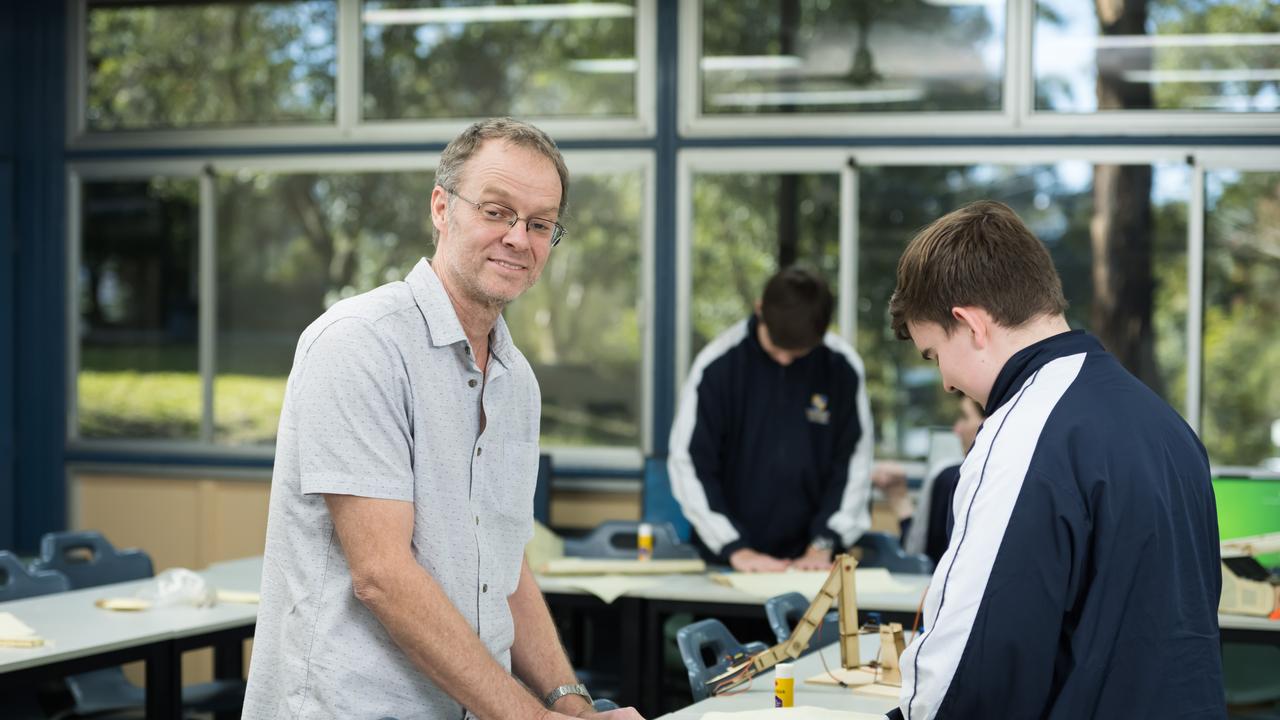
“This project has massive amount of learning areas from electronic and software development within drone engineering to our significant project build two seat aircraft from building from plans to kit builds.
“As part of this project I have incorporated aviation professionals to mentor the students however, during Covid we were not allowed to have our aviation mentors on site, which was a shame as our student lost all the invaluable skills demonstrated by our mentors.”
Mr Casten will be using his fellowship money to implement an aviation program for the Burnside junior school.
“As you can imagine building aircraft is an expensive endeavour, so will also go toward continuing that project,” he said.
Trent Cowley, Principal of Kingston State School
Two years ago, Kingston State School was identified as a ‘priority support review school’ characterised by extreme disadvantage, trauma, drug and alcohol addiction, homelessness, and unemployment.
But when Mr Cowley became Principal, he worked tirelessly to create a cultural shift centred on collaboration, lifting expectations, and innovative programs.
“It was my challenge to my teachers for them to create the most engaging classrooms possible, to deliver quality teaching and learning every day,” Mr Cowley said.
“The other major (Covid related) challenge is the lack of technology or internet connectivity that exists in some of our homes, this made ‘learning from home’ quite challenging.
“Through a relentless focus on improving student wellbeing and driving an improvement agenda around reading and writing, we were able to improve the number of students receiving an A-C up by 20 per cent in an 18-month period.”
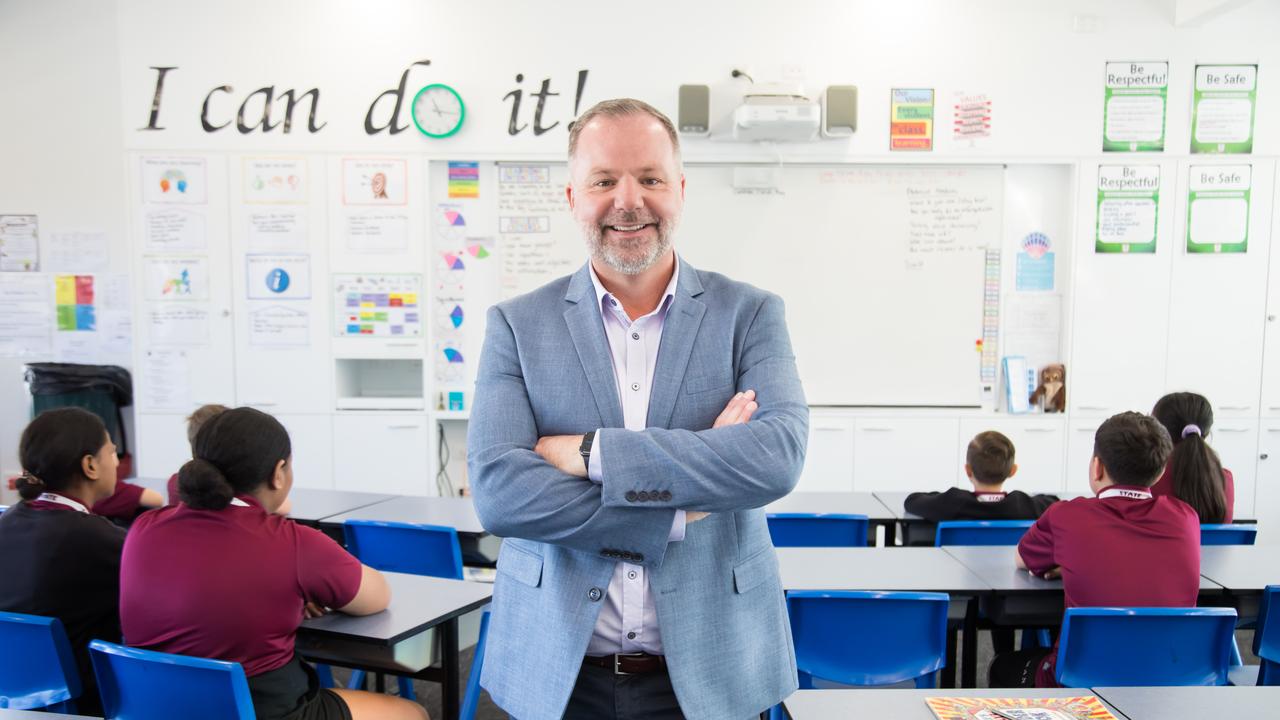
Mr Cowley also established a partnership between his school and Queensland Health and the Bryan Foundation, gaining a $15m facility to deliver health and community services to Kingston State School families.
On top of health care, The facility will offer parents access to VET courses to give them confidence to enter the workforce.
“This new building will allow families to access key health services and community agencies that they otherwise may not have been able to attend due to problems with transport or other limiting factors,” Mr Cowley said.
“Our students deserve the best start in life. While many of our students face certain challenges, the inability to attend medical or wraparound appointments, should not mean they don’t get to benefit from these services.
“It will be amazing if our families can see a nurse, GP or hopefully a paediatrician on our school site.
“If the barrier of transport is removed, then hopefully our students and their families can have access to medical services they may have had to previously go without.”
Mr Cowley plans to use his fellowship money to keep learning form the world’s best education systems and to take Kingston State School teachers to other Queensland schools so they can experience different teaching methods.
“This funding will help us to build the teaching capacity of our teaching staff,” he said.
“It will expose teachers to more classrooms and develop their capacity to become the best teachers possible.
“The more our teachers are exposed to across our state, the more they learn. The more knowledge our teachers can pick up, the more engaging our classrooms will become.”
Michael Hornby, Principal of Mabel Park State High School
Mr Hornby pioneered an innovative on-site GP program, the first in Queensland, which has since been rolled out in 50 other schools.
To further support Mabel Park State High School students, he also developed a cross-disciplinary team comprised of youth workers, guidance officers and a psychologist, transforming the school’s learning environment to focus on wellbeing.
“My inspiration to do this was the belief that schools need to be more inclusive and to serve the needs of students, not students serving the needs of the school,” Mr Hornby said.
“We put students first in every decision we made and that led to the school transforming into a dynamic and innovative school that was student centred.
“Every student deserves the opportunity to succeed in school no matter what their background, and at Mabel we drove conversations about how to be more inclusive so that every student was connected to Mabel.”
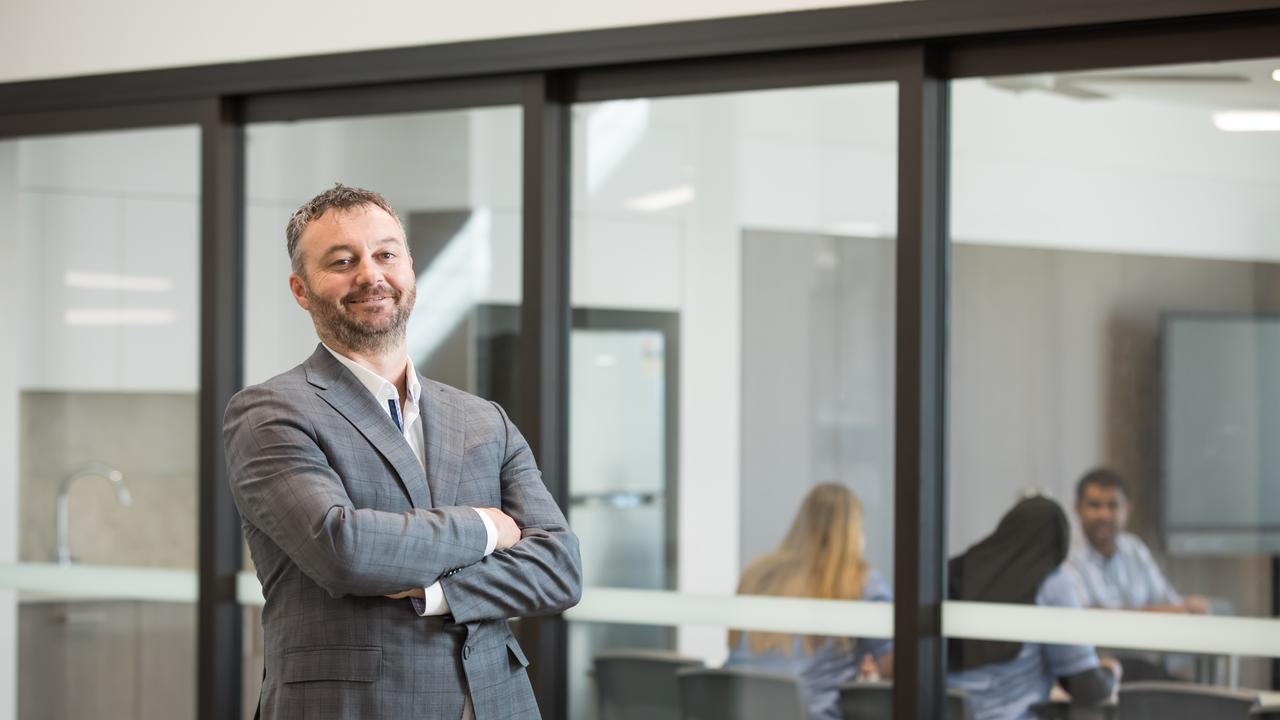
Like Principal Cowley, Mr Hornby said his largest Covid challenge was the number of students who did not have access to technology for remote learning.
“We are a lot better position today because of Covid but it was definitely a challenge we had to overcome,” he said.
“Teachers adapted phenomenally and pushed our IT leanings beyond what we thought was capable in a very short time period.”
He will be using his $45,000 fellowship award to embark on a program that investigates how to use technology to support First Nation students and their connection to land and their mob.
“I would like to take teachers and students to their home country and have students interview their elders and film this interview so their stories can be shared across our whole community and be preserved for future students.,” he said.
“The funding allows us to invest in our First Nations students and make sure they have strong connections to their culture, family, land and in turn the school.”
Liudmyla Kovalev, Teacher at Loganlea State High School
A strong advocate of learning via virtual reality, Ms Kovalev decided to implement the learning technique in her school.
She has found many benefits to teaching with digital technologies including the ability to broaden students’ horizons by providing them with a perspective they never would have had before, increasing excitement in the classroom and improving attendance.
But she credits her Ukrainian grandfather, who had minimal access to education, for fostering her strong belief in the value of education when she was growing up in Ukraine.
Ms Kovalev said since becoming a teacher, she has always tried to explore new ways to make the learning process fun and engaging and after introducing virtual reality, augmented reality, iPads and Apple TV in her classrooms, she saw significant improvement in student participation.
“Digital technologies open up an access to learning on a whole new level; Apple TV and iPads make learning interactive, current and fun and VR and AR devices help students understand complex information, concepts, and theories,” Ms Kovalev said.
“VR devices place students in the middle of the experience – allowing them to travel to the highest, deepest, most interesting places in the world from the comfort of their own desk.
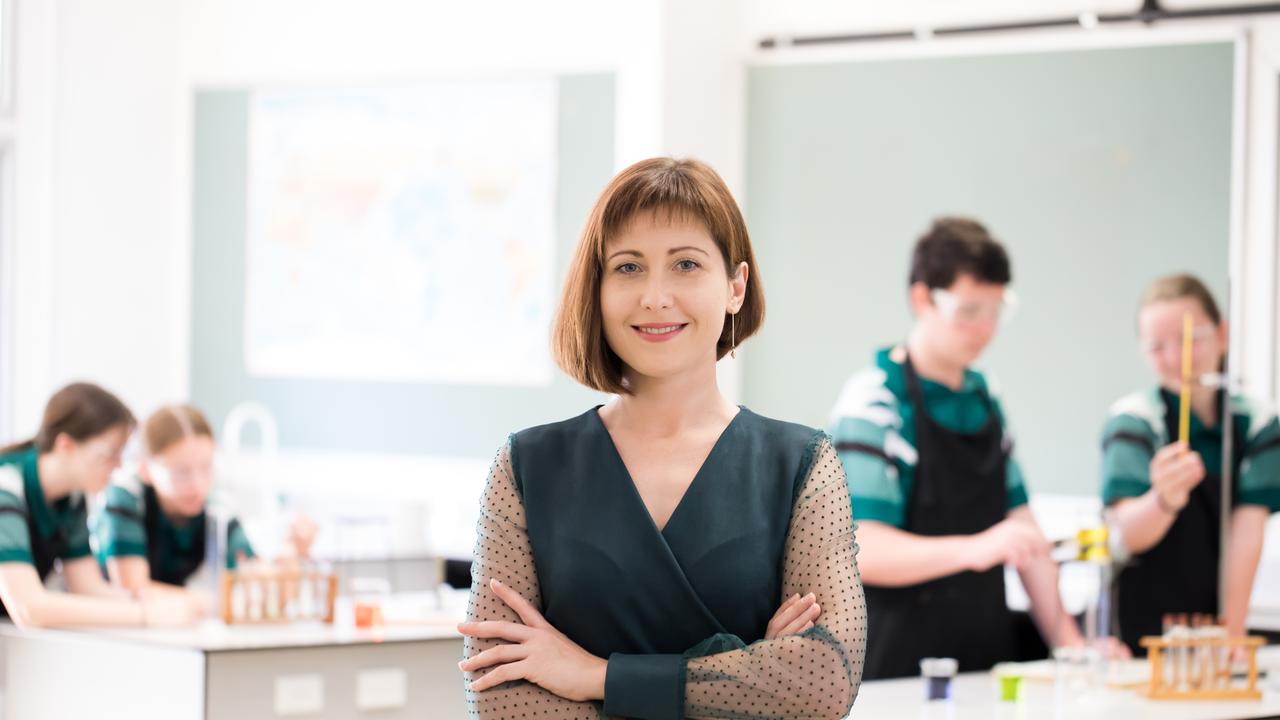
“For example, rather than looking at the picture of a digestive system on the worksheet, students can participate in an immersive experience that shows the structure of the system from inside. It has completely transformed the learning experience.
“I’ve seen students learn, discuss, question and challenge. This inspired me to consistently deliver these experiences in my classroom.”
For Ms Kovalev, the nature of the pandemic led to unpredictable class attendance, as well as difficulties with students’ various access to the internet or technology.
“Covid threw a few challenges at us… we had to be prepared for both face-to-face and online learning, all within the same timeline,” she said.
“Some of our students had limited access to quality internet or devices and teacher illness and staff shortages led to more merges and bigger workloads.”
As a newer teacher still in the early stages of her career, Ms Kovalev was awarded a $10,000 grant to be put towards her professional development.
She will use the money to learn more about Indigenous culture and incorporate Indigenous perspectives and culture in her classroom.
“This will help me to improve learning outcomes for my First Nations students while connecting the community, as well as help me learn new ways of teaching, improve my practice, enable me to share what I learn with others, and improve outcomes for my students,” Ms Kovalev said.
“I also hope it will encourage other teachers to try new approaches and share their successes for the better future of our students and overall profession.”
Jenna Cullen, Head of Teaching and Learning at Marsden State High School
As head of teaching at Australia’s largest school, Marsden State High School, Ms Cullen has invested her energy in upskilling early career teachers to work in the intense education environment.
Her passion for career development runs so deep, she developed a neuroscience and behavioural management course that helps teachers prepare students for university.
“My space to play in is professional learning for our staff of over 250 teachers,” Ms Cullen said.
“Since 2020 I have run professional development (PD) for 900 preservice teachers in neuroscience and behaviour management, helping to bridge the gap between university and the classroom.
“When teachers learn more about how the brain works, their teaching improves and we also worked on sharing this information with students and the community because when students know what successful learning behaviours are, they are set up to achieve.”
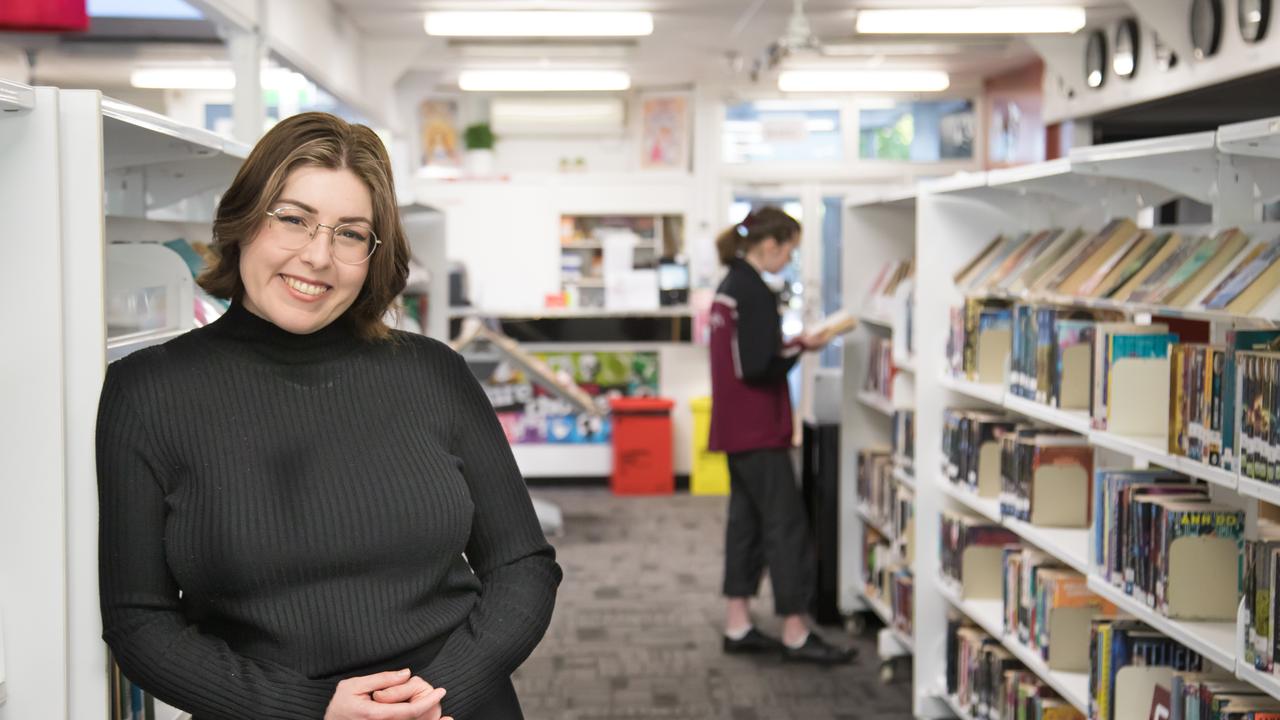
Ms Cullen also developed a “flexible learning library” designed by teachers, which greatly assisted new teachers who were beginning their careers online during the pandemic.
“We had 30 per cent of our staff in their first three years during the first lockdown, with no access to in person PD,” she said.
“We created the Marsden Institute of Teacher Development (MITD), a flexible and responsive online library that helped teachers upskill in remote teaching strategies, how to effectively use technology and tools for wellbeing.
“Now we have 50 hours of content designed by our staff group to support them in teaching our 3700 students.”
With “so many ideas” on how to use her $45,000 fellowship Ms Cullen says she hasn’t quite decided yet, but her project will involve creating opportunity for her “education heroes” to further work with staff and parents.
“I am proud to be working alongside the high calibre of teachers we have in Logan; of the 12 teaching fellows, three are from Logan,” she said.
“I would like to see the great ideas we have here amplified, so many schools are having issues with attraction and retention of staff, and I want to share the great work our team does with programs for early career teachers, flexible professional learning and building community.”
Full list of Queensland’s 2022 Commonwealth Bank Teaching Award winners
Teaching Fellows
• Trent Cowley, Kingston State School, QLD
• Jenna Cullen, Marsden State High School, QLD
• Toni Hatten-Roberts, Mastery Schools Australia, QLD
• Adrian Casten, Burnside State High School, QLD
• Michael Hornby, Mabel Park State High School, QLD
Early Career Teachers
• Liudmyla Kovalev, Loganlea State High School, QLD
• Alys Tipler, Browns Plains State High School, QLD
• Justin Betts, Sunnybank State High School, QLD
Originally published as Queensland’s top educators dominate at national 2022 Commonwealth Bank Teaching Awards








